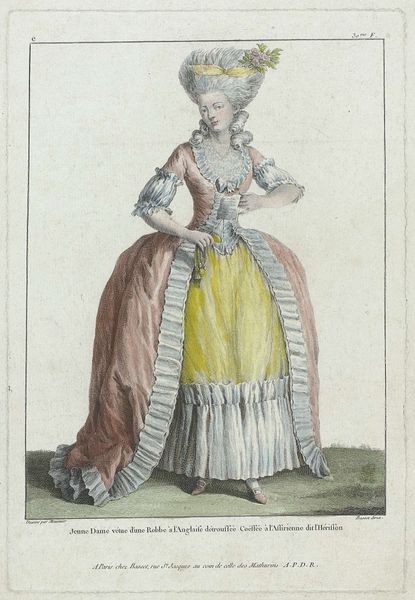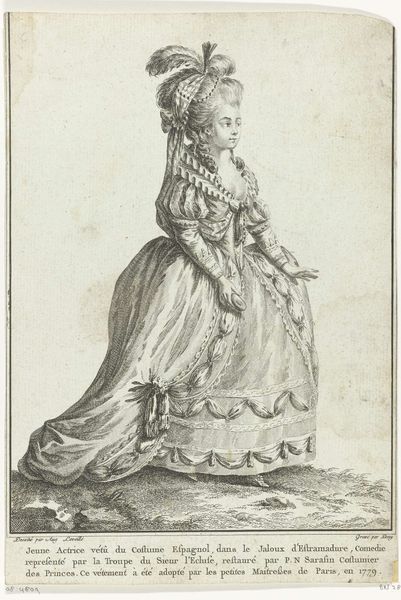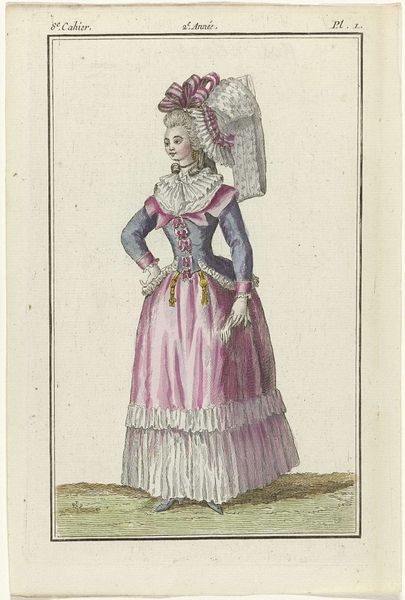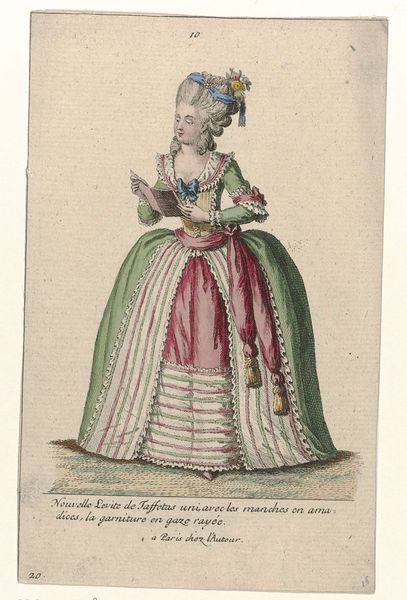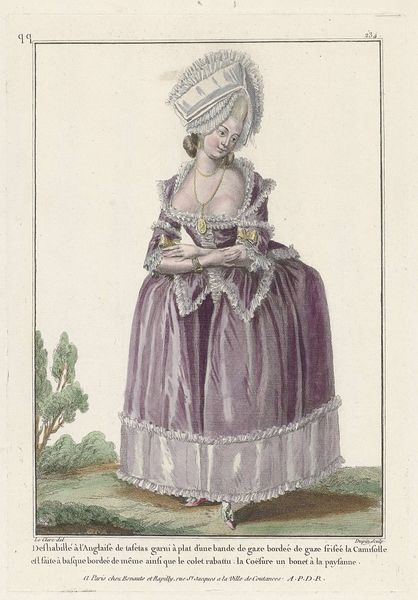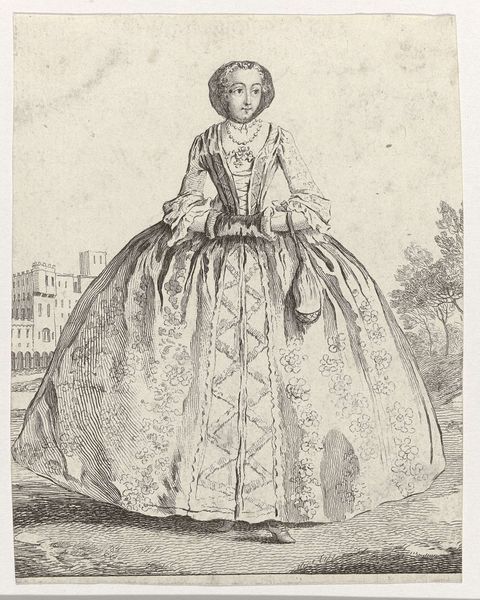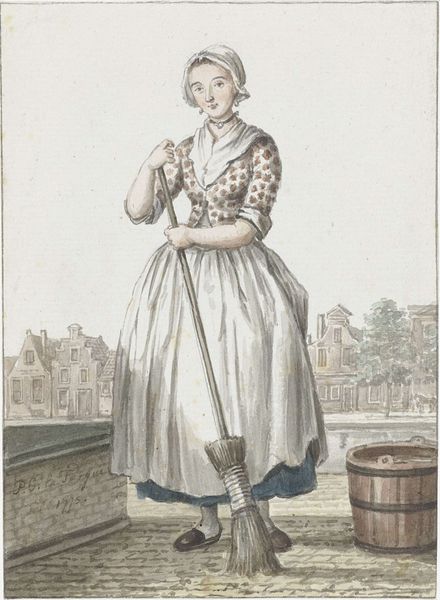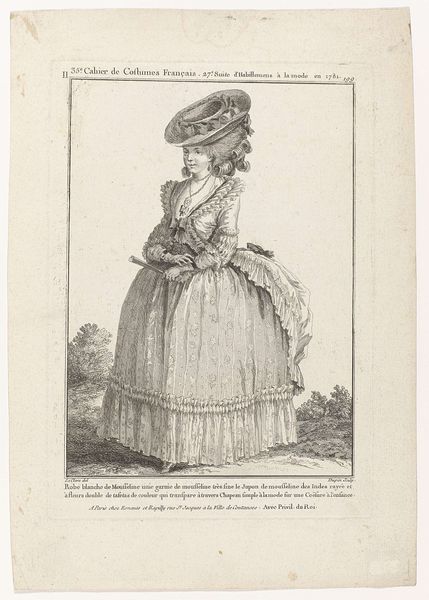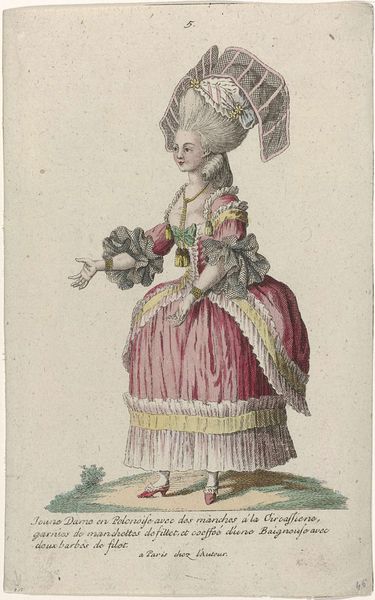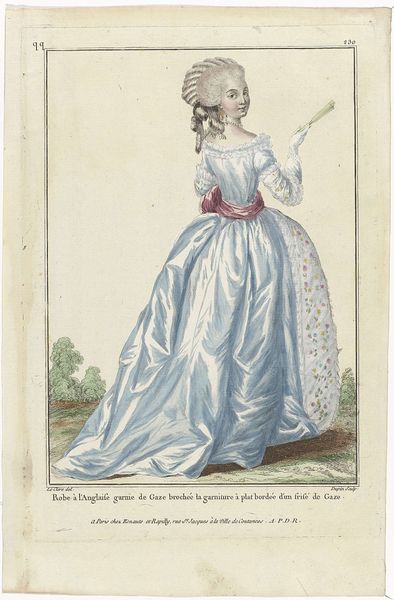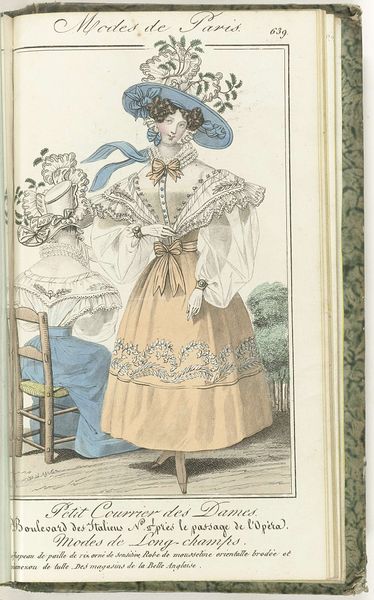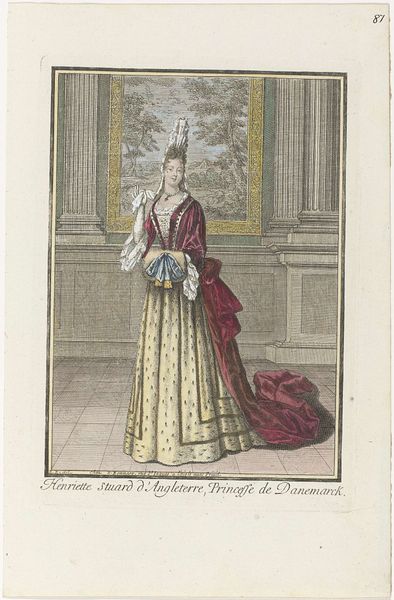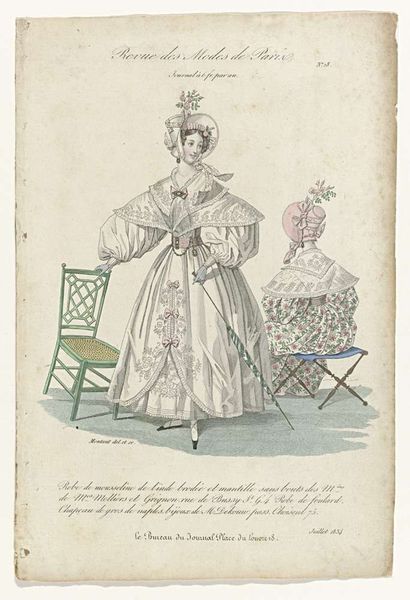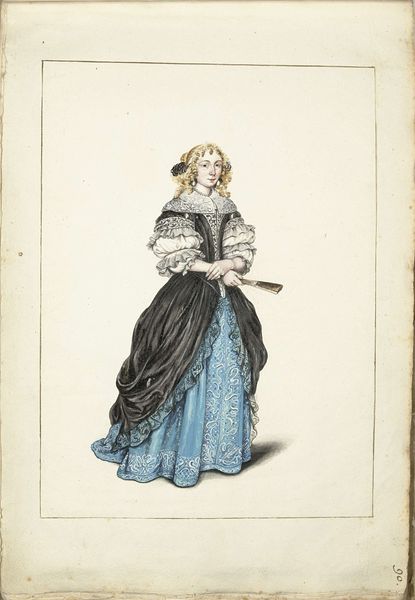
painting, watercolor
#
portrait
#
painting
#
landscape
#
botanical illustration
#
watercolor
#
coloured pencil
#
watercolour illustration
#
genre-painting
#
botanical art
Dimensions: height 146 mm, width 103 mm
Copyright: Rijks Museum: Open Domain
Paulus Constantijn la Fargue created this watercolor of a Noord-Hollands girl in 1775. In its formal elements and attention to detail, it connects to broader themes of cultural identity and the representation of regional types in 18th-century Dutch art. The image creates meaning through its depiction of traditional Dutch clothing and its associations with the rural landscape. The artist made this artwork in the Netherlands, a maritime nation in the 1700s that was characterized by its global trade networks and its republican values. Features of that culture like windmills can be seen in the background. La Fargue's image reflects a self-conscious interest in preserving and celebrating local customs, perhaps in response to the cosmopolitan influences of the time. The art world of the 1700s was interested in the documentation of daily life. Historians use resources such as costume books, travelogues, and demographic studies to better understand the social context of the painting and the cultural significance of its imagery. The meaning of art relies on social and institutional context.
Comments
No comments
Be the first to comment and join the conversation on the ultimate creative platform.
